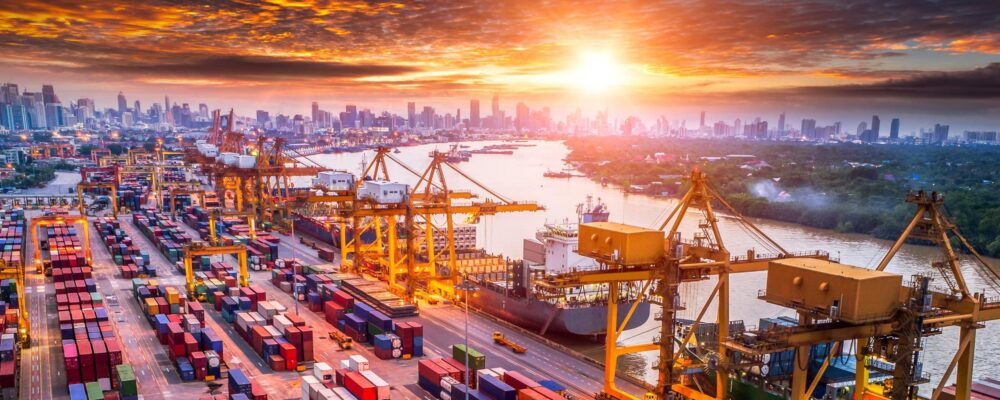
We’re often warned against opening Pandora’s box, a metaphor for unleashing a torrent of evils on the world. Yet, we forget an essential detail: Elpis – the spirit of hope – remained within the box. Even when the world seems consumed by chaos, hope endures.
Throughout history, philosophers and leaders have celebrated hope as a powerful force. The ancient Chinese philosopher Lao Tzu observed, “As long as we have hope, we have direction, the energy to move, and the map to move by.” And military leader Napoleon Bonaparte recognised the influence of hope in leadership, declaring, “A leader is a dealer in hope.”
Many have conceptualised hope as a desire and a belief in the fulfillment of that desire. However, hope isn’t just naïve or unbridled optimism, where we assume a positive outcome is inevitable; it entails action. Hope is goal-oriented and accompanied by a realistic plan, making it a powerful source of motivation. It is an engine that not only helps us envision a future possibility but also empowers us to take action to create this future.
The nuances of hope and how it manifests
Our capacity for hopeful thought begins to develop in early childhood, as we start to understand cause and effect. This marks the moment we become conscious of our agency: our ability to act independently and shape our own destiny, allowing us to imagine and pursue different paths and possibilities. This sense of agency becomes an important coping or survival mechanism, especially when the path we’re on appears to be blocked.
Hope can be categorised into two main types: realistic and unrealistic hope. Realistic hope is grounded in what is reasonable, possible and achievable. It is action-oriented, driving a person toward attainable goals. Unrealistic hope, however, is wishful thinking, where we expect positive outcomes to fall into our laps. Individuals harbouring unrealistic hope may find themselves disappointed and frustrated when their expectations aren’t met.
In addition, there is existential hope, a more general belief that something good is going to happen, and utopian hope, a collective belief that combined action can lead to a better future for everyone. Then there is religious faith, which involves hope in the unseen, such as divine union and eternal happiness.
To better understand the nuances of hope, we must consider the concept of “locus of control”, a psychological term referring to an individual’s perception of the main causes of events in their life. People with a strong internal locus of control believe they have agency over their own actions. When they hope for something, they also believe in their ability to achieve it. In contrast, people with an external locus of control think that whatever happens to them is the result of luck or fate. They believe they are at the mercy of outside forces (such as fate, God or powerful others). These people will be less inclined towards realistic hope due to their lack of agency.
Hope isn’t something you either have or don’t have; it’s a learned skill that can be cultivated. So, how can we learn to be more hopeful and channel hope into action?
Give yourself permission to hope
If you want to become more hopeful, you need to give yourself permission to embrace this outlook on life. During difficult times, make an effort to engage in activities that nurture hope, such as imagining and planning for the future. Visualise what you truly desire, reminding yourself that hope always exists, no matter how challenging or dire your situation may seem. Conversely, avoid succumbing to hopelessness or giving up entirely, as losing hope can become a self-fulfilling prophecy. Grant yourself permission to look toward the future with excitement and ambition.
Write your hopes and fears into clarity
Once you’ve adopted the right mindset, the next step is to explore various future scenarios. The self-reflective practice of journalling can be particularly helpful in fostering self-awareness but also for cultivating a more hopeful outlook on the future. While journalling, write about your highest hopes as well as your deepest fears. Consider identifying factors that might prevent you from maintaining a hopeful outlook, alongside what needs to be done to fulfill your hopes.
Set a meaningful, achievable goal
As you work through this exercise, it’s important to create at least one personally meaningful goal – something you’ve truly dreamt about. After all, if you don’t have a dream, how can you make a dream come true? It is essential to focus on something you want to do, not just something you need to do. Ask yourself if the goal is attainable and whether you can genuinely envision yourself achieving it.
Map your path, and pivot when needed
Next, brainstorm different pathways to achieve your goal. Use your imagination to outline the steps needed to make it happen. Naturally, some pathways may not work out, but don’t despair if that happens. Instead, reassess your strengths and choose new pathways based on the lessons learned from those failures. Developing multiple alternatives is essential.
Find strength in others’ journeys
There will be times when you can’t go it alone and will need to ask for help. Seek out others to join you in what you’re trying to accomplish; they can give you the strength to carry on. Additionally, look for mental support in the journeys of others. Reflect on their life stories and learn how they have succeeded. In a way, you are searching for “heroes of hope” to turn to when you feel stuck or uninspired. Often, seeing others succeed can help you succeed as well.
Turn small victories into fuel for hope
Naturally, staying hopeful requires experiencing some measure of success, no matter how small. Remember, success doesn’t always mean achieving a major life goal – small achievements matter, too. If you’re struggling to reach your goal, break it down into smaller, more manageable steps to make it feel more attainable. Celebrating little victories along the way can help sustain a hopeful mindset.
There will be moments in life when you feel like you’re drowning, when giving up seems tempting, and hope feels out of reach. In these times, resist giving in to despair. Instead, hold on to hope – one of life’s greatest miracles. Hope has the power to inspire you to achieve the impossible and carry you through difficult times. Like Elpis, who remained in Pandora’s box, hope acts as a counterforce to the demons of anger, revenge and despair, replacing them with faith, courage, joy and love.
As Dale Carnegie, the American pioneer of self-improvement said, “Most of the important things in the world have been accomplished by people who have kept on trying when there seemed to be no hope at all.”
“INSEAD, a contraction of “Institut Européen d’Administration des Affaires” is a non-profit graduate-only business school that maintains campuses in Europe, Asia, the Middle East, and North America.”
Please visit the firm link to site





